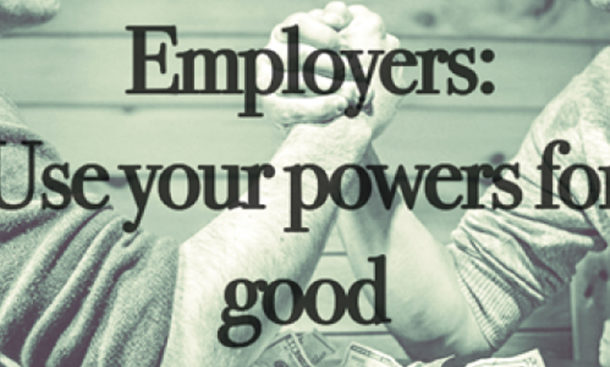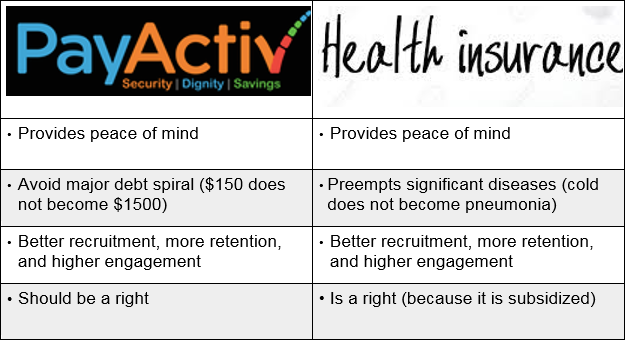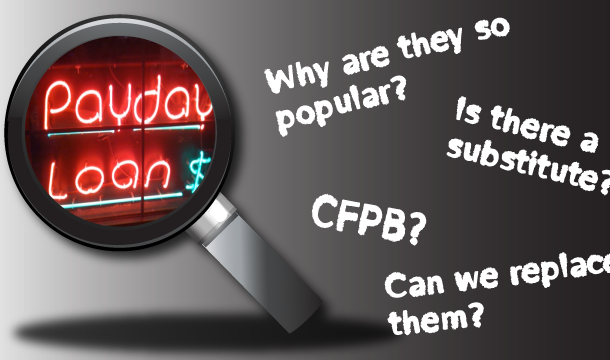
Employee Wellness Program Benefits
The Untold Story of Millions who accumulate debt while waiting for payday
Felipe is 40-years-old, a machinist in New Jersey and the breadwinner of his household. He has very little in savings, no credit card, and struggles on a weekly basis to make ends meet and provide for his family.
As the sole provider for his family, Felipe is often late on his rent. Not because he wastes money, but because he must prioritize basic necessities such as milk and food. The late fee for the rent is $45 each time and he ends up spending more than $500 every year, simply because his earned money cannot be accessed until the next payday, when it’s already too late.
Felipe’s employer decides to offer the PayActiv service as a voluntary benefit – for a nominal flat fee of $5, workers can access a portion of their already earned funds – Felipe decides to try the service. A week later, he has the same dilemma: find an additional $200 to avoid a late fee of $45 – but this time, because of PayActiv, Felipe can withdraw the necessary funds and avoid the late payment. For the first time in a year, he does not waste money on a late fee. PayActiv helped Felipe regulate his income and manage his financial health.
A month later, Felipe is more productive at work, unburdened from the major domestic stresses caused by a lack of control over his income timing. Instead of hoping that the next payday arrives before more fees or loans become necessary, he has the peace of mind that in an emergency he can withdraw a small amount of funds to deal with daily expenses.
PayActiv is implemented through employers to offer a financial wellness programs to employees helping them access their funds for a nominal flat fee. The employer can choose to sponsor the program at no-cost to employee, or subsidize the program like the health insurance model. PayActiv is offered as a privilege but it should be a right, as is employer-sponsored healthcare. By looking at PayActiv through the lens of employer-sponsored healthcare, a recruiting incentive that eventually became a right, I will validate the urgent need for such a service.
The story of employer sponsored healthcare – a recruiting incentive that became a right
Gregory’s narrative, much like Felipe’s, is about a caring husband and father who provided for his wife and two kids. He was a skilled factory worker in the post World War II era, suffering from asthma and poor health since childhood. Hospital visits and medical bills were a significant part of his annual income, notably affecting his level of savings.
Gregory’s employer wanted to increase his salary, to increase his retention at work, as there was a shortage of skilled labor during and after the war. Fearing that competitors would offer him a higher salary, but unable to give him a raise because of an anti-inflation restriction enforced by the 1942 Stabilization Act, his employers provided him with healthcare instead.
Healthcare as a benefit became employer’s key differentiator for retention and engagement. This incentive was a win-win situation; a tax-deductible expense for the employer and non-taxable income for Gregory. Soon, this notion of healthcare became vogue. Gregory and his colleagues were the first recipients of this benefit, however it was only a matter of time until his friends, family and neighborhood community also became benefactors. Employer-sponsored health insurance grew to become the cornerstone of the American healthcare system. An alignment of corporate sponsored healthcare with politics gained momentum, and politicians began proposing their own systems and plans, creating policies and ultimately nationalizing healthcare.
Healthcare gradually grew from a recruiting incentive to a well-deserved right. Employer sponsored healthcare and access to earned income are united in both trope and thought. Analyzing their similar framework reveals why, in the words of Martin Luther King Jr., there is “a fierce urgency of now” for employees to access earned income through services such as PayActiv.
Metaphors – Employer-sponsored health insurance and timely access to earned income
Timely access to earned income and health insurance both provide peace of mind to the subscriber, help restrain a potential downward financial trajectory, and show better recruitment, retention, as well as engagement in the work place. Knowing that you have access to your wages and do not have to enter a debt-spiral is similar to preventive medicine. A borrowed $150 dollars won’t become $1500, just as a simple cold will not develop into pneumonia with timely attention. Employers also see greater enrollment and retention, while communities are happier and healthier overall as a result of access to earned income as well as health insurance.
Employer sponsored healthcare benefits both Gregory and his employer. Similarly, PayActiv’s access to earned income has advantages for both the employer and the employee. Every week, $136 billion are earned by Americans but remain inaccessible, creating significant financial stress for workers such as Felipe. In this day and age, employee financial wellness programs are a vital benefit that needs to be recognized as a right and implemented by employers.
Access to earned income: A right?
PayActiv’s service is a breakthrough idea that helps to alleviate the financial stress faced by millions of people. Its financial wellness program is both innovative and fiscally responsible. The recognition of healthcare as rightful compensation helped to transform it from a privilege to a right. Access to earned but unpaid income should follow the same trajectory. With the advent of technology and the capability of accessing one’s salary at any given time in a month through electronic transactions, PayActiv’s model is a product of societal advances. It is rightful compensation. Given the current fervor against payday lending debt traps, laws are being proposed to curtail these predatory loans. There is a demand for a fiscally responsible alternative, and PayActiv is a viable solution.
Employee Wellness Benefits Comparison

Here’s some food for thought –
If you have already earned it and urgently need it, why can’t you access it? It is your money.
“I’ve earned it. I need it. Now I can access it. Thank you PayActiv.” -Thousands of users
************
Maya Ahmed is an intern at PayActiv, and an aspiring lawyer. A student at Sarah Lawrence College, in New York, she is going abroad for her senior year to The London School of Economics and Political Science. While dribbling on the soccer field, she thinks about those deprived of their basic rights and benefits. She strives to put smiles on such faces in her time in this world.
************
Get Payactiv for your business
Related Articles
Everyday pay presents a practical opportunity to immediately pay workers what...
Compassionate workplace culture not only breeds happier employees, but also...
Many employees are staying longer in their current roles due to the stability...
© 2024 Payactiv, Inc. All Rights Reserved
24 hour support: 1 (877) 937-6966 | [email protected]
* The Payactiv Visa Prepaid Card is issued by Central Bank of Kansas City, Member FDIC, pursuant to a license from Visa U.S.A. Inc. Certain fees, terms, and conditions are associated with the approval, maintenance, and use of the Card. You should consult your Cardholder Agreement and the Fee Schedule at payactiv.com/card411. If you have questions regarding the Card or such fees, terms, and conditions, you can contact us toll-free at 1-877-747-5862, 24 hours a day, 7 days a week.
** Central Bank of Kansas City is the issuer of the Payactiv Visa Prepaid Card only and does not administer, endorse, nor is liable for the Payactiv App.
1 Standard rates for data and messaging may apply from your wireless provider.
Google Play and the Google Play logo are trademarks of Google LLC.
Apple and the Apple logo are trademarks of Apple Inc., registered in the U.S. and other countries. App Store is a service mark of Apple Inc., registered in the U.S. and other countries.




